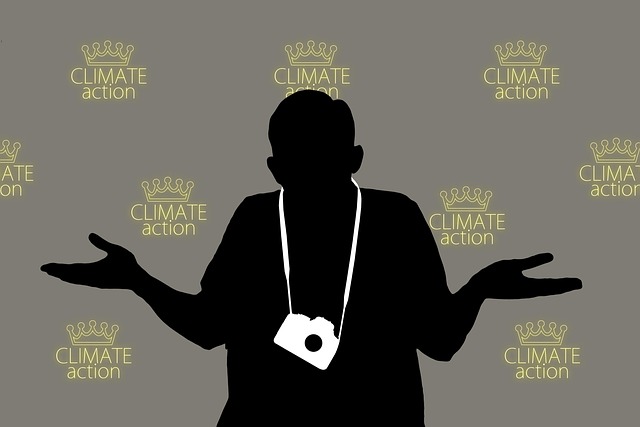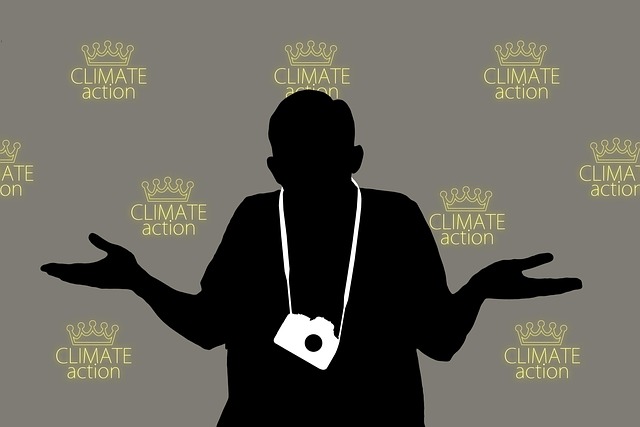TL;DR:
Global content adaptation is crucial for UK humor and satire pieces due to cultural nuances that shape their unique wit, irony, and wordplay. Specialized translation services act as cultural navigators, balancing preservation of the original piece's essence with respect for local audiences and taboos. They employ linguists who understand comedic styles and adapt references, puns, and visual humor for diverse international audiences. This meticulous process ensures UK humor maintains its impact while becoming accessible worldwide, fostering cross-cultural laughter. AI and ML technologies are transforming humor adaptation, enabling tailored global content that preserves the unique flavor of UK comedy.
Optimizing humor for global distribution presents unique challenges, as what resonates in one culture may fall flat in another. This article explores the art of adapting UK humor and satire for international audiences through a lens of cultural nuances. We delve into translation strategies for witty phrases, puns, and visual humor, while navigating taboo topics and localizing content for specific global markets. Discover case studies showcasing successful translations and explore future trends driven by AI and machine learning in humor adaptation, ensuring memorable experiences for diverse audiences worldwide, including top-tier UK humor and satire pieces translation services.
- Understanding Cultural Nuances of Humor: A Global Perspective
- UK Humor and Satire: Unique Traits and Challenges
- The Art of Translating Witty Phrases and Double Entendres
- Cultural Context in Humor Translation: Do's and Don'ts
- Adapting Puns and Wordplay for Different Languages
- Visual Humour and Cartoon Translation: A Complex Task
- Navigating Taboo Topics and Satirical Boundaries
- Localizing Humor for Specific Global Markets
- Case Studies: Successful Translations of UK Humor Abroad
- Future Trends: AI and Machine Learning in Humor Adaptation
Understanding Cultural Nuances of Humor: A Global Perspective

Humor is a universal language, but its nuances vary across cultures. When optimizing humor for global distribution, understanding these cultural subtleties is essential. UK humor and satire pieces, known for their wit and sarcasm, may not resonate equally everywhere. What’s considered funny in one culture could be offensive or misunderstood in another.
Translation services play a vital role here by not just translating words but also adapting humor to local tastes. They must capture the essence of the original piece while respecting cultural boundaries. This involves understanding the target audience’s sense of humor, taboos, and shared experiences, ensuring that humor translates well across languages and cultures without losing its impact or causing unintentional offense.
UK Humor and Satire: Unique Traits and Challenges

UK humor and satire have distinct traits that set them apart from other global comedic styles. Known for their sharp wit and incisive social commentary, UK comedy often relies on subtle irony, dry humor, and clever wordplay. Satire in particular thrives on parodying current affairs, politics, and popular culture, with a focus on exposing absurdities and hypocrisy. However, translating these nuances into other languages presents unique challenges.
When it comes to UK humor and satire pieces translation services, the task involves more than just converting words from one language to another. Cultural context, idiomatic expressions, and subtle comedic timing must be carefully considered to ensure the humor lands effectively with global audiences. Professional translators who understand these nuances can adapt UK comedy for international distribution, preserving its unique flavor while making it accessible and entertaining worldwide.
The Art of Translating Witty Phrases and Double Entendres

Humor is a universal language, but translating witty phrases and double entendres accurately can be a challenging task, especially when adapting UK humor and satire pieces for global distribution. While word-for-word translations may capture the literal meaning, they often fail to convey the intended comedic effect or subtle nuances that make humor unique across cultures. Professional translation services specializing in UK humor and satire pieces are essential to navigate these complexities.
These services employ translators who not only possess a deep understanding of the source material’s cultural context but also have a keen sense of humor themselves. They meticulously analyze wordplay, puns, and cultural references, ensuring that the translated version retains its essence while resonating with the target audience. By carefully considering the differences in humor across languages and cultures, these translation services enable global audiences to enjoy UK humor and satire pieces as intended, fostering cross-cultural connections through laughter.
Cultural Context in Humor Translation: Do's and Don'ts

When translating UK humor and satire pieces for global distribution, understanding cultural context is paramount. Humor is deeply rooted in societal norms, references, and taboos that vary significantly across regions. For example, what’s considered hilarious in one culture might offend another. Translators must tread carefully when adapting material to avoid losing the comedic intent or, worse, causing unintentional offense.
Therefore, it’s crucial to follow certain dos and don’ts: always conduct thorough research into the target audience’s cultural nuances; steer clear of jokes that rely on ethnic, religious, or political stereotypes; and avoid translating word-for-word, as humor often loses its impact across languages. Instead, focus on capturing the essence of the joke through clever adaptation and creative translation services. Services specializing in UK humor and satire pieces can help navigate these complexities, ensuring your content resonates with global audiences while maintaining its comedic integrity.
Adapting Puns and Wordplay for Different Languages

Humor is a universal language, but adapting it for global distribution requires a delicate balance, especially when it comes to puns and wordplay. What works in one language might not have the same comedic effect or even make sense in another. For instance, UK humor often relies on clever wordplay and punning, which can be challenging to translate into other languages.
Professional translation services specializing in humor and satire play a crucial role here. They employ linguists who understand cultural nuances and can capture the essence of the original joke or play on words while ensuring it resonates with international audiences. These services are essential for content creators looking to share their UK-style humor with a global audience, ensuring that the comedic elements land as intended, regardless of language barriers.
Visual Humour and Cartoon Translation: A Complex Task

Visual humour, a prominent feature in UK humor and satire pieces, poses unique challenges when translating for global distribution. Cartoons, with their reliance on visual cues, symbolism, and subtle nuances, require skilled translators who understand both cultural contexts and artistic intent. The task becomes even more complex when considering that what is considered funny or witty in one culture might not translate well to another due to varying social norms, humour styles, and shared references.
Translation services specializing in UK humor and satire pieces must employ linguists who are adept at preserving the original humour while adapting it for new audiences. This involves meticulous analysis of visual elements, puns, wordplay, and cultural references embedded within the cartoons. By bridging the gap between artistic expression and linguistic precision, these translation services ensure that global viewers can appreciate and enjoy UK humor and satire pieces without losing their comedic impact.
Navigating Taboo Topics and Satirical Boundaries

Humor is a universal language, but its interpretation can vary greatly across cultures. When optimizing humor for global distribution, one of the key challenges lies in navigating taboo topics and satirical boundaries. What’s considered humorous in the UK might be deeply offensive or completely incomprehensible in other parts of the world. For instance, cultural nuances around race, politics, religion, and social norms differ significantly, demanding a delicate balance when adapting humor for international audiences.
Translation services play a vital role here by not only translating words but also understanding the subtleties and context behind them. Professional translators who are native speakers of the target languages can help in ensuring that the humor translates well while respecting cultural sensitivities. This involves more than just word-for-word translation; it requires an awareness of local taboos, idiomatic expressions, and comedic styles to create a humorous effect that resonates with global audiences.
Localizing Humor for Specific Global Markets

When optimizing humor for global distribution, one of the key considerations is localization. What works in one culture might not resonate in another due to differing social norms, values, and humor styles. For instance, UK humor and satire often relies on subtle irony, wordplay, and a dry sense of humor that may require adaptation for foreign audiences. Translation services play a vital role here, ensuring that the essence of the joke or satirical piece is preserved while making it accessible to a broader global audience.
Localizing humor involves not just translating words but also understanding cultural nuances. This could mean adapting references, explaining complex puns, or even restructuring jokes to align with the target market’s sense of timing and comedic preferences. Professional translation services specializing in UK humor and satire pieces can help creators navigate these complexities, enabling them to reach a wider, more diverse global audience without losing the original intent and impact of their work.
Case Studies: Successful Translations of UK Humor Abroad

When optimizing UK humor for global distribution, case studies of successful translations offer valuable insights. Many UK humor and satire pieces have found international audiences, proving that cultural adaptability is key. Translation services play a vital role in this process, ensuring that comedic timing, wordplay, and subtle references are accurately conveyed in different languages.
For instance, British television shows known for their witty humor have successfully launched in continental Europe, where they’ve been adapted to local tastes while retaining their unique charm. This suggests that while some cultural nuances may need adjustment, the essence of UK humor can transcend borders, making it a powerful tool for global entertainment.
Future Trends: AI and Machine Learning in Humor Adaptation

The future of humor adaptation is set to be reshaped by Artificial Intelligence (AI) and Machine Learning (ML). These technologies offer unprecedented opportunities for creating tailored, globally appealing content. By analyzing vast datasets of cultural nuances, AI can learn to identify universal comedic elements while respecting local sensitivities. This ensures that UK humor and satire pieces, when translated using advanced ML algorithms, remain accessible and impactful across diverse audiences worldwide.
AI-driven translation services can adapt humor in real-time, ensuring the original tone and intent are preserved. This capability is particularly valuable for international collaborations and media distribution. As global communication becomes increasingly digital, AI will play a pivotal role in breaking down language barriers and delivering laughter without geographical constraints.
Optimizing humor for global distribution requires a deep understanding of cultural nuances, as what resonates in one country might fall flat elsewhere. This article has explored various aspects of this challenge, from navigating the unique traits and challenges of UK humor and satire to the art of translating puns and wordplay, and even visual humor. It has highlighted the importance of adapting content for specific global markets while respecting local sensitivities and providing case studies demonstrating successful translations. As AI and machine learning advance, these tools will play an increasingly significant role in facilitating the global distribution of humor, ensuring that UK humor and satire pieces continue to find their audience worldwide. For those seeking professional translation services specializing in UK humor and satire, understanding these cultural nuances is key to delivering content that truly resonates globally.



